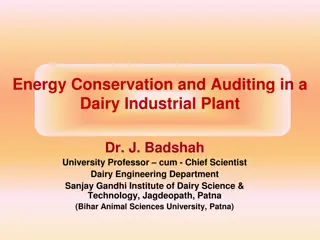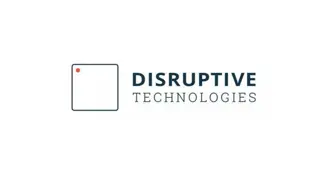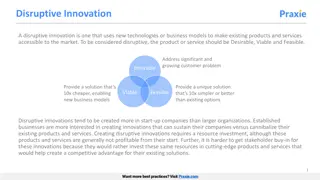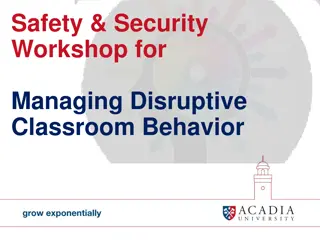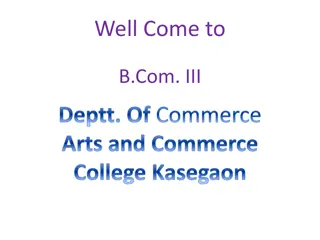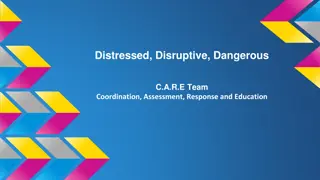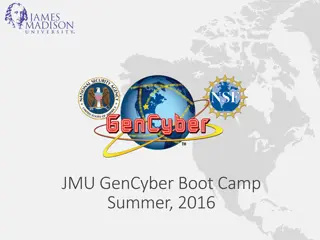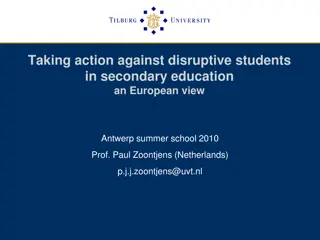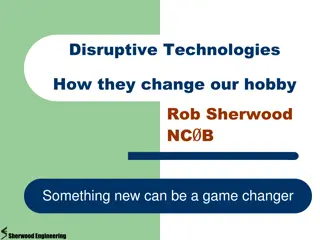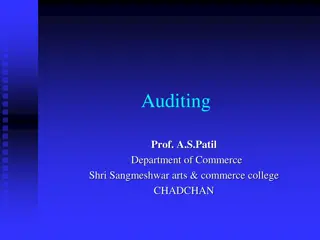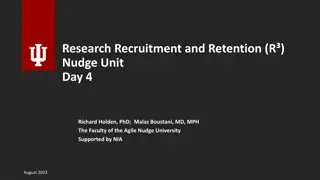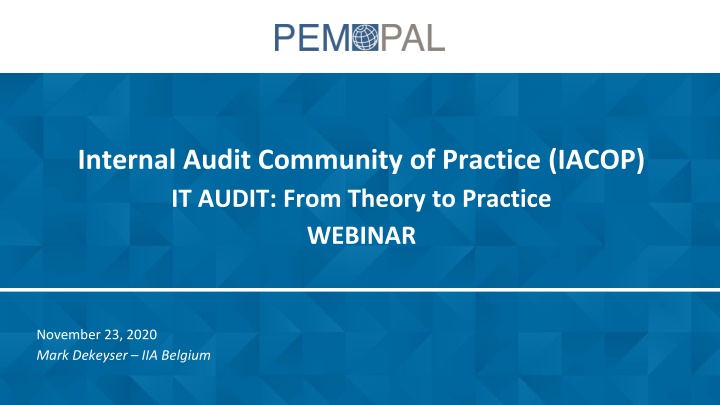
Disruptive Technologies in Modern Auditing
Impact of disruptive technologies on auditing in the modern era, encompassing the 4th Industrial Revolution and key technologies like IoT, AI, blockchain, and more. Gain insights into the evolving landscape of audit practices in the face of technological advancements.
Download Presentation

Please find below an Image/Link to download the presentation.
The content on the website is provided AS IS for your information and personal use only. It may not be sold, licensed, or shared on other websites without obtaining consent from the author. If you encounter any issues during the download, it is possible that the publisher has removed the file from their server.
You are allowed to download the files provided on this website for personal or commercial use, subject to the condition that they are used lawfully. All files are the property of their respective owners.
The content on the website is provided AS IS for your information and personal use only. It may not be sold, licensed, or shared on other websites without obtaining consent from the author.
E N D
Presentation Transcript
Internal Audit Community of Practice (IACOP) IT AUDIT: From Theory to Practice WEBINAR November 23, 2020 Mark Dekeyser IIA Belgium
Disruptive processes in the Audit Context 2 Agenda The 4th Industrial revolution The most important disruptive technologies Is this a topic of interest to auditors?
The 4th Industrial Revolution 3 World Economic Forum January 2016 Components Big Data, Artificial Intelligence, Block Chain, Robotics, Virtual Reality, Autonomous vehicles, Nanotechnology, Biotechnology, Materials science, Energy storage, Quantum computing, etc. Call upon world-leaders to prepare for what is to come Introduction Statement Chairman of WEF January 2016 We stand on the brink of a technological revolution that will fundamentally alter the way we live, work, and relate to one another. In its scale, scope, and complexity, the transformation will be unlike anything humankind has experienced before. Introduction speech summarized Video link https://www.youtube.com/watch?v=khjY5LWF3tg
The 4th Industrial Revolution 4 Today s Internet is expanded with the Internet of Things (IoT) People will be connected to Internet of Everything (IoE) By means of wearables and electronical implants The IoE will be embedded in our daily lives Without having to actively connect to it, in order to use it It will be there, without thinking about it Like the air we breath we don t think about taking a breath, nor about the air itself The technology of Internet will disappear in the background, to become part of us all the time This process will take approximately three decades only Started in 2010 and expected to be fully integrated in society by 2040
The 16 most important Disruptive Technologies 5 Vast energy production & storage Bio- technology 2. Derived technologies 4. Then, the next big things Internet (IoT - IoE) - Based on 5G Artificial Intelligence Robotica and 'Bots Virtual, Enhanced & Augmented Reality Massive Online Offered Courses Transport Autonomou s vehicles Nano- technology Universal Basic Income 3D & 4D printing Earth, Moons and planets exploration Living Services Big Data Quantum Computing 1. Building Blocks of the 4th Industrial Revolution Domotica & Smart Cities 3. Human implications Payments Block Chain Material science
Speed of onset 6 Technology is not suddenly going to come to a stop At the contrary, it will increasingly go faster Linear thinking: from 1 to 100 are 100 steps Exponentially is that (less than) 8 steps 1, 2, 4, 8, 16, 32, 64, 128 In 6 steps not yet in 1/3rd The next two steps more than reach the goal Moore s law Computer capacity doubles every 18 months It comes to an end! Has been said many times in the past already but is still going on Sometimes also referred to as the tsunami effect
When will it change? 7 Nobody can predict the detailed future Time horizon was set at 25 years mostly realized by 2042 Technology in Years to completion, just an example When exactly which technology will break through, is hard to predict IoT 20 Virtual Reality 3D Printing 18 16 UBI AI & robots 14 Graph is only an example of what could be 12 10 Also next slide: Gartner Hype Cycles Quantum Vehicles 8 6 4 Is all this really going to happen? 2 Nano tech Big Data 0 Yes, it is irreversible; the seeds were already planted Is society going to survive this? Planets Bio Tech Open question MOOCs Block Chain Must be careful Materials Smart cities Energy Only when it will support us
When will it change? 8 Gartner Hype Cycles Per subject Per year
Role of Internal Audit 9 Internal Audit should provide important insights on disruption, considering the impact on the whole organization Stakeholders expectations Are the strategic objectives aligned for disruption? Are disruptive technologies accepted in the organization? How are disruptive technologies implemented and utilized? Internal Audit is well-positioned to assess risks arising from disruptive change Are disruptive implications for the organization sufficiently examined, including changes to the organization s culture, work environment, business plans, customer s expectations ? Mind that processes become data driven instead of procedural Have these data risks been identified and are they sufficiently addressed?
Role of Internal Audit 10 Disruptive change is coming - this is irreversible and unavoidable 5G will boost the IoT/IoE, on top of which AI and robots will materialize Disruption is a discontinuity from the past, it is not destructive Benefits Safety, Health, Profits The future is controversial Still a lot of uncertainty, maybe even fear Taking on our role as auditors Give insight to our organizations Also play our role in society Embrace the future Help other to prepare Communication, assurance, join in
ANY QUESTIONS? THANK YOU!



